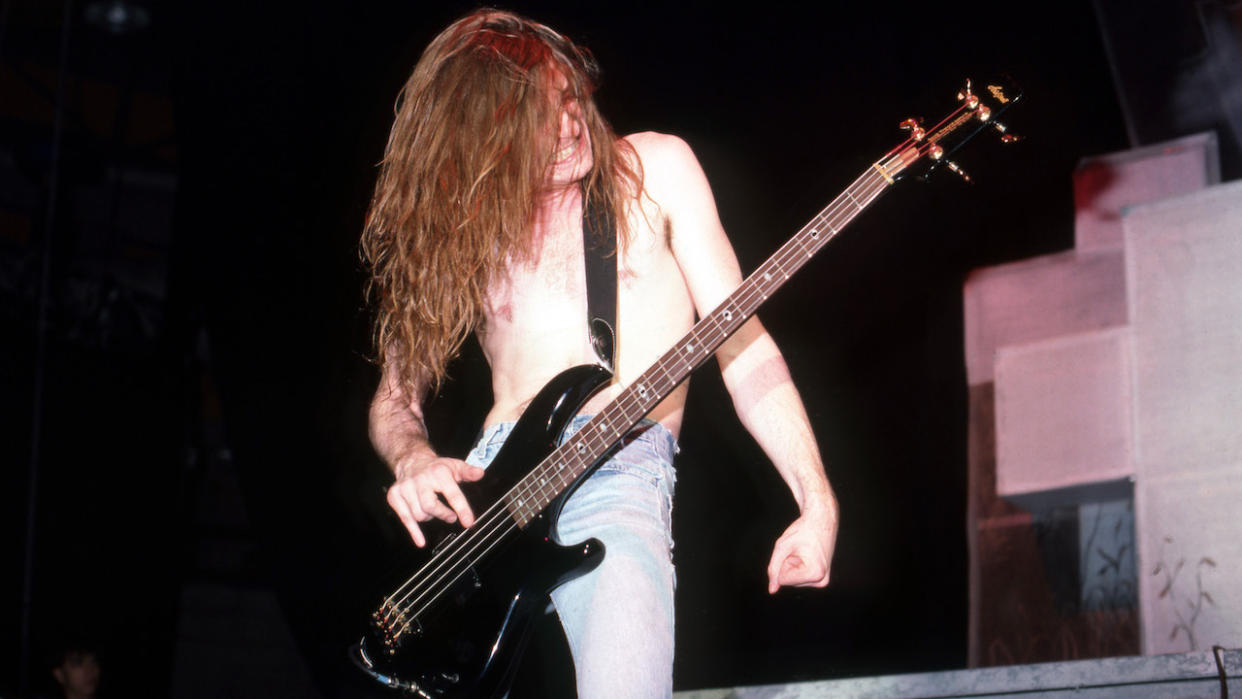Cliff Burton wrote one of Metallica’s heaviest riffs on a de-tuned classical guitar

- Oops!Something went wrong.Please try again later.
- Oops!Something went wrong.Please try again later.
- Oops!Something went wrong.Please try again later.
Even after 40 years of Metallica’s evolution, For Whom The Bell Tolls, track three of the group’s era-defining Ride The Lightning album, has retained its status as one of the most recognisable bass guitar anthems in the history of metal. Speaking to Rolling Stone in 2014, lead guitarist Kirk Hammett revealed that Metallica’s first truly heavy song took shape, strangely enough, on bassist Cliff Burton’s acoustic guitar. “Cliff would play that riff a lot in the hotel room, when him and I were hanging out,” said Kirk.
“He used to carry around an acoustic classical guitar that he detuned so that he could bend the strings. Anyway, when he would play that riff, I would think, ‘That’s such a weird, atonal riff that isn’t really heavy at all.’ I remember him playing it for James, and James adding that accent to it and all of a sudden, it changed. It’s such a crazy riff. To this day, I think, ‘How did he write that?’ Whenever I hear it nowadays, it’s like, ‘OK, Cliff’s in the house.’”
The song starts with a 4 bar bass riff that’s classic early Metallica. A triplet feel combined with a Bb5 tritone chord that’s rounded off with a triplet quarter note run to break things up. It’s a crushing example of Burton’s ‘lead bass’ approach and his frightening fingerstyle technique. “Ride the Lightning was the first time that both Cliff and Kirk got a chance to add what they were doing,” said drummer Lars Ulrich. “They just came from a different school, especially Cliff, who came from a much more melodic approach.”
During the studio sessions for Ride The Lightning, Cliff’s influence really began to assert itself. According to producer Flemming Rasmussen, who recorded the band in Copenhagen’s Sweet Silence Studio, while it was “Lars and James that were more or less in charge” in terms of pure musical vision, “from an artistic point of view it’d probably be Cliff.”

“He was more like a soloist than a regular bass player,” said Flemming. “The first time I recorded him, I tried all sorts of shit to make him feel comfortable, because he was more used to the live environment. Eventually, I put his amp in another room, and he’d play in the main room like he was onstage, with the sound blasting from these speakers. It was pretty wild.”
Prior to joining Metallica in 1982, Burton cut his teeth with California-based power trio Agents of Misfortune. At 09:53 of this next clip, Burton can be seen jamming For Whom the Bell Tolls having entered a local Battle of the Bands contest. Rickenbacker 4001 in hand, Burton is clearly the star of the show. “The bass player was completely outrageous,” Ulrich said of their first viewing of Cliff on stage. “We just looked at each other and said, ‘That’s our new bass player.’”
Burton was tragically killed in a bus accident in September 1986 and has since become something of a bass legend. He was only with Metallica for the first three albums, Kill ‘Em All, Ride the Lightning, and Master of Puppets.
Metallica’s 72 Seasons, their first album since 2016’s Hardwired… to Self-Destruct, is available now on Amazon.
